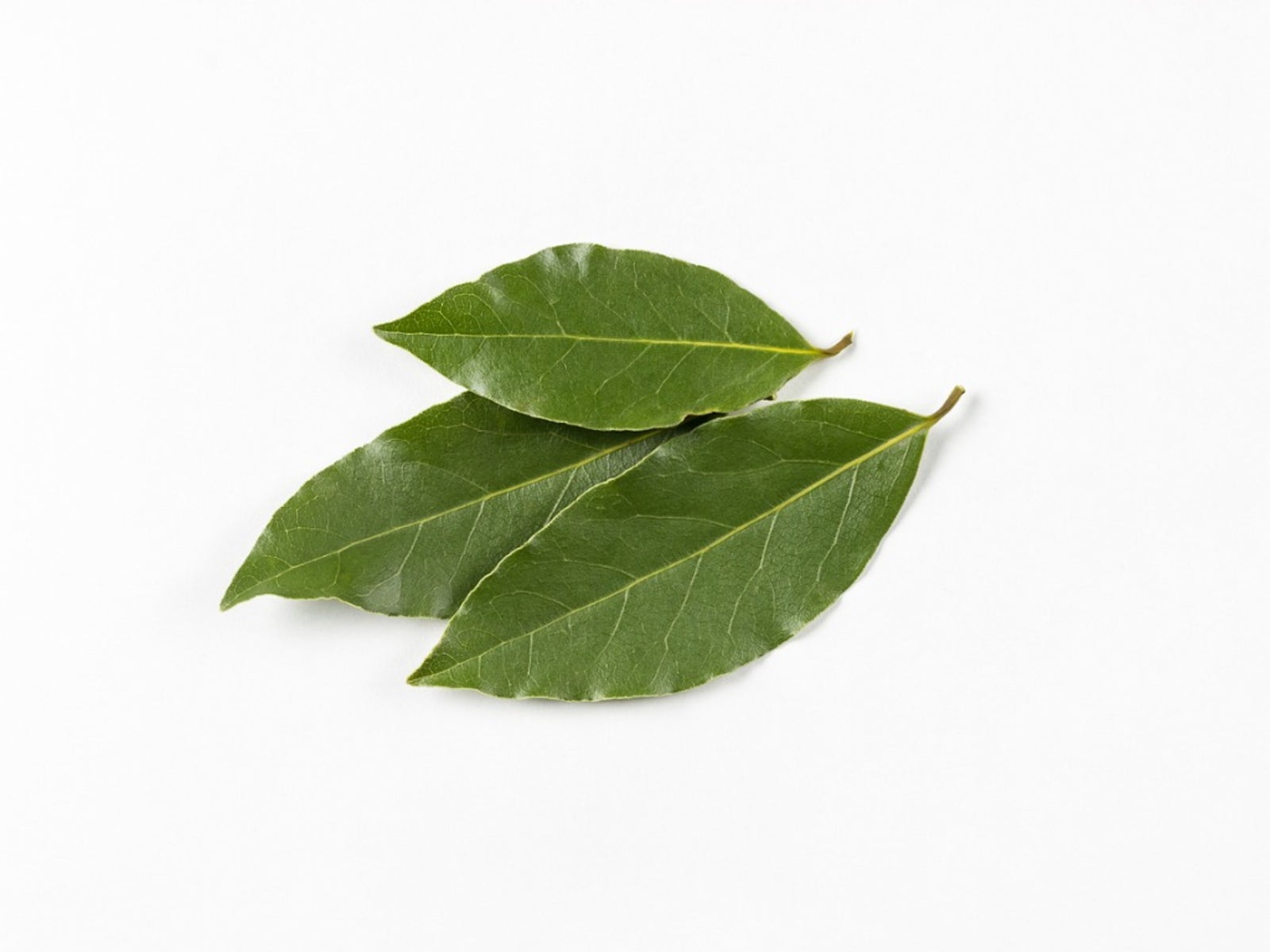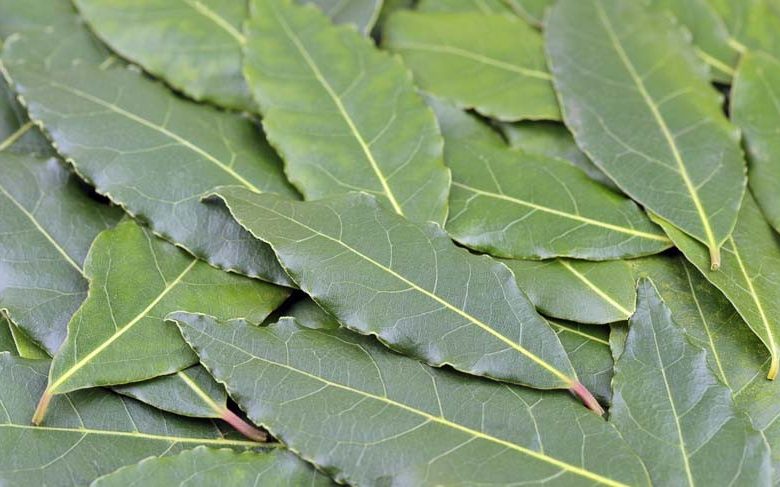Bay leaves are not toxic to cats but may pose a choking hazard or cause digestive issues if swallowed whole or in large pieces. While visually similar plants can be poisonous, bay leaves are safe for cats to consume in small amounts.
However, ensuring they are cooked properly before feeding your cat is important.

Credit: www.gardeningknowhow.com
Are Bay Leaves Toxic To Cats?
Bay leaves are a popular herb used in cooking, but many pet owners wonder whether they can harm their furry friends. This blog post will explore the potential hazards of bay leaves for cats. Let’s start with an overview of bay leaves.
Overview Of Bay Leaves
Bay leaves, scientifically known as Laurus nobilis, are aromatic leaves commonly used as flavouring agents in various cuisines. These leaves are usually dried and added to soups, stews, and other dishes to enhance the flavour. Bay leaves are rich in essential oils, giving them a distinct aroma and taste.
While bay leaves are generally safe for human consumption, pet owners must be cautious about their furry friends, as cats have different dietary requirements. Let’s now detail the potential hazards of bay leaves for cats.
Potential Hazards Of Bay Leaves For Cats
While bay leaves are not considered toxic to cats, they can still pose a risk. Here are some potential hazards to be aware of:
- Choking Hazard: Bay leaves remain stiff even after cooking, and if swallowed whole or in large pieces, they can potentially cause choking or blockage in a cat’s digestive tract. It is crucial to ensure that bay leaves are finely chopped or removed from dishes before serving them to your feline friend.
- Gastrointestinal Upset: Ingesting bay leaves can lead to gastrointestinal upset in cats. This may manifest as symptoms such as vomiting and diarrhea. If you suspect your cat has consumed bay leaves and exhibits these symptoms, it is best to consult a veterinarian for guidance.
It’s important to note that every cat is unique, and their reactions to different substances can vary. While bay leaves may not be highly toxic to cats, it’s always better to err on the side of caution and keep them away from your furry companions.
In conclusion, while bay leaves are not toxic to cats, they can still pose a risk if not handled properly. To ensure the safety of your feline friend, it’s best to avoid feeding them dishes that contain bay leaves or any other potentially hazardous ingredients. If you suspect your cat has ingested bay leaves and exhibits any concerning symptoms, seek veterinary attention immediately.

Credit: www.gardenia.net
How To Keep Cats Safe From Bay Leaves
Preventive Measures
If you want to keep your feline friend safe from the potential risks associated with bay leaves, there are a few preventive measures you can take. These simple steps can help protect your cat from ingesting or being exposed to bay leaves:
- Store bay leaves securely: Ensure that bay leaves are stored in airtight containers or sealed bags. This will prevent your curious cat from accessing them and accidentally ingesting them.
- Keep bay leaves out of reach: Cats are skilled climbers and can easily reach higher surfaces. Store bay leaves completely out of your cat’s reach, such as a high cabinet or pantry.
- Be cautious while cooking: Be mindful of their placement when using bay leaves. Keep them away from the edges of countertops or tables, where cats can easily swipe them onto the floor and gobble them up.
- Secure garbage bins: Cats are notorious for their scavenging skills. Use a secure garbage bin with a tightly fitting lid to prevent your cat from digging through the trash and finding discarded bay leaves.
Alternative Herbs For Cats
If you still want to add flavour to your dishes but are concerned about the potential risks of bay leaves for your cat, there are alternative herbs you can use. These herbs are safe for cats and can provide similar aromatic qualities to your recipes:
- Catnip: Catnip makes your cat go wild with excitement and can add a subtle minty flavour to your recipes.
- Parsley: This herb adds a refreshing and slightly peppery taste to dishes, making it a great substitute for bay leaves.
- Basil: Known for its versatility and distinctive aroma, basil can be used in various recipes, including pasta sauces and soups.
- Thyme: With its earthy and slightly floral flavour, thyme is a good addition to stews, roasts, and desserts.
By opting for these safe alternatives, you can continue to enhance the flavours of your favourite recipes without putting your cat at risk.

Credit: www.healthline.com
Frequently Asked Questions On Are Bay Leaves Toxic To Cats
Can Bay Leaves Be Toxic?
Bay leaves are not toxic and can be eaten without harm, but they can pose a choking hazard if swallowed whole or in large pieces.
Is Burning Bay Leaves Toxic To Pets?
Burning bay leaves is not toxic to pets, but the smoke can cause potential lung issues for dogs. It’s best to keep your dog out of the house while burning bay leaves to prevent respiratory problems.
Do Animals Eat Bay Leaves?
Bay leaves are not toxic to animals and can be eaten without harm. However, if swallowed whole or in large pieces, they may pose a choking hazard or harm the digestive tract. Some animals, such as deer, may eat bay leaves as they are high in protein.
Are Bay Trees Safe For Pets?
No, bay leaves are unsafe for pets. If ingested, they can cause digestive issues. Bay leaves should be kept away from pets to prevent choking or obstruction.
Conclusion
Based on the information gathered, bay leaves are not toxic to cats. While they can be safely consumed without harm, caution should still be exercised due to their stiff nature, which can pose a choking hazard.
It is always best to ensure that food is prepared safely and in appropriate portions for your furry friend. If you suspect that your cat has ingested a bay leaf or is experiencing any symptoms, it is advisable to consult a veterinarian for further guidance.

